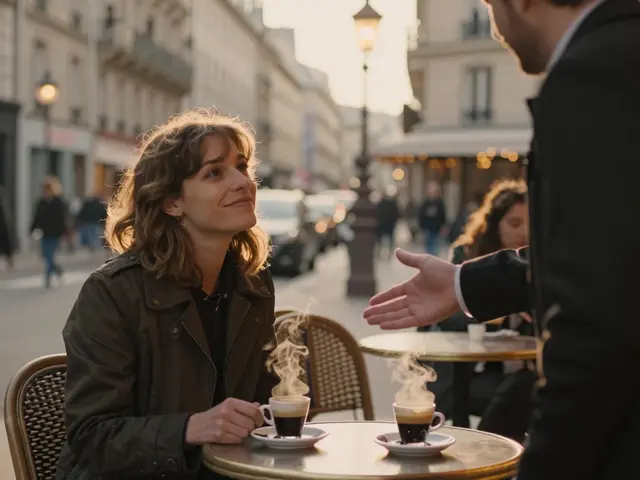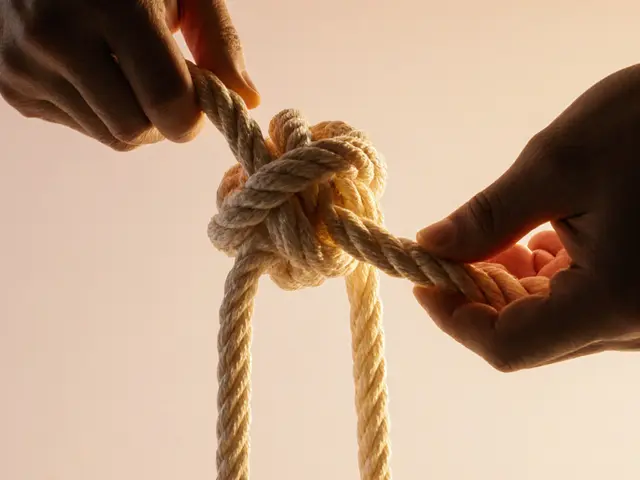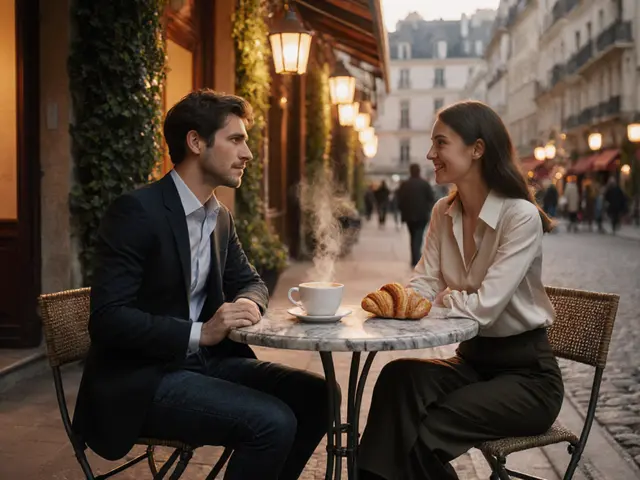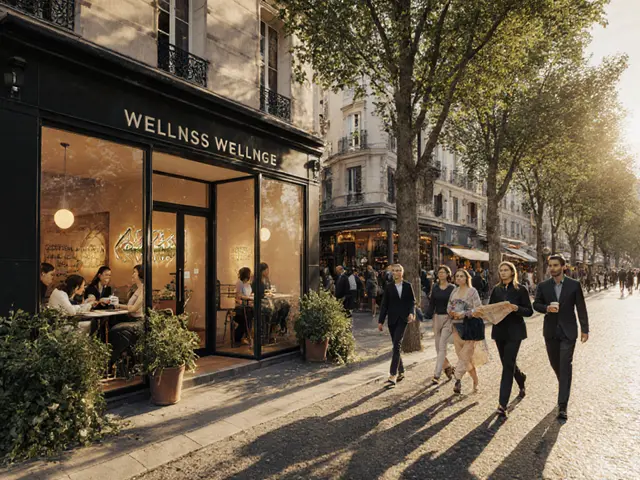Ultimate Guide to Massage in Paris 17: Best Spas, Therapies, and Local Tips
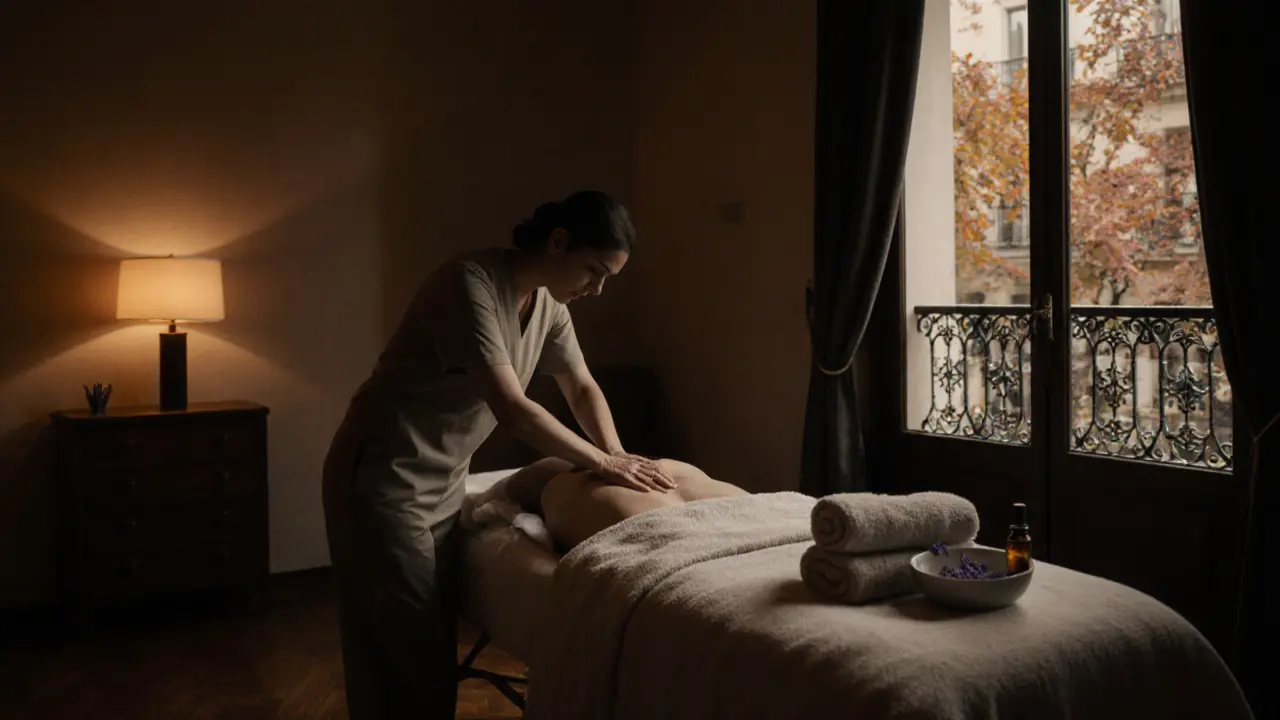
When you’re walking through the quiet streets of Paris 17, past the cafés with outdoor tables and the old apartment buildings with wrought-iron balconies, it’s easy to forget you’re in one of the busiest cities in Europe. But if you’ve been on your feet all day, chasing meetings or wandering the museums, your body knows it. That’s when a good massage isn’t a luxury-it’s a reset button.
What Makes Massage in Paris 17 Different
Paris 17 isn’t Montmartre. It’s not the tourist-heavy zones of the 8th or 9th arrondissements. It’s residential, calm, and full of locals who know where to find real relaxation. The massage scene here isn’t about flashy signs or Instagrammable interiors. It’s about skilled therapists, quiet rooms, and treatments that actually work.You won’t find chain spas with standardized routines. Instead, you’ll discover small studios run by people who trained in Lyon, Marseille, or even Bangkok. Many therapists here have years of experience in both French massage techniques and global modalities like Shiatsu or Thai massage. They don’t just move your muscles-they listen to your body.
One of the biggest differences? The focus on massage Paris 17 as healing, not just pampering. A 60-minute session here isn’t just about feeling good-it’s about correcting posture issues from standing all day at your job, easing tension from carrying a bag on one shoulder, or helping with chronic lower back pain that won’t quit.
Top 5 Massage Types You’ll Find in Paris 17
Not all massages are the same. Here’s what actually works in this part of Paris:
- Swedish Massage - The classic. Long strokes, kneading, circular movements. Perfect if you’re new to massage or just want to melt away stress. Most studios in Paris 17 offer this as a baseline.
- Deep Tissue Massage - For people who carry tension in their neck, shoulders, or lower back. Therapists use slower pressure and target deeper muscle layers. Great for desk workers or runners.
- Aromatherapy Massage - Essential oils like lavender, eucalyptus, or orange are mixed into the oil. This isn’t just scent-it’s science. Studies show lavender oil can reduce cortisol levels by up to 30% during massage.
- Shiatsu - Japanese finger-pressure technique. No oil, no lying face down. You stay dressed, and the therapist applies pressure along energy lines. Ideal if you’re skeptical about getting undressed.
- Hot Stone Massage - Smooth, heated stones placed on key points. The warmth relaxes muscles so deeply that therapists can work with less pressure. Especially popular in winter months.
Most places let you choose your pressure level. Don’t be shy to say “lighter” or “deeper.” Good therapists adjust on the spot.
Where to Go: Top 3 Spas in Paris 17
You don’t need to wander far. Here are three spots locals swear by:
- Le Jardin du Bien-Être - Located on Rue de la Convention. This quiet studio has only two treatment rooms. The owner, Marie, trained in Lyon and specializes in combining Swedish massage with reflexology. Her signature 90-minute session includes a warm herbal compress on the feet. Book ahead-she’s often full two weeks out.
- Senso Massage Studio - On Rue de la Chauvelière. This place feels like a Japanese onsen. No loud music, no bright lights. They use organic almond oil and offer a 60-minute aromatherapy option with custom blends. Their Shiatsu sessions are the most authentic in the arrondissement.
- Thérapie du Corps - Near Porte de Clichy. This one’s newer, but the therapist, Lucas, used to work in a physio clinic in Bordeaux. He focuses on injury recovery and posture correction. If you have recurring pain, this is your spot.
All three accept walk-ins on weekdays before 3 PM, but weekends? Book online. Most use platforms like Doctolib or their own simple websites. No apps, no gimmicks.
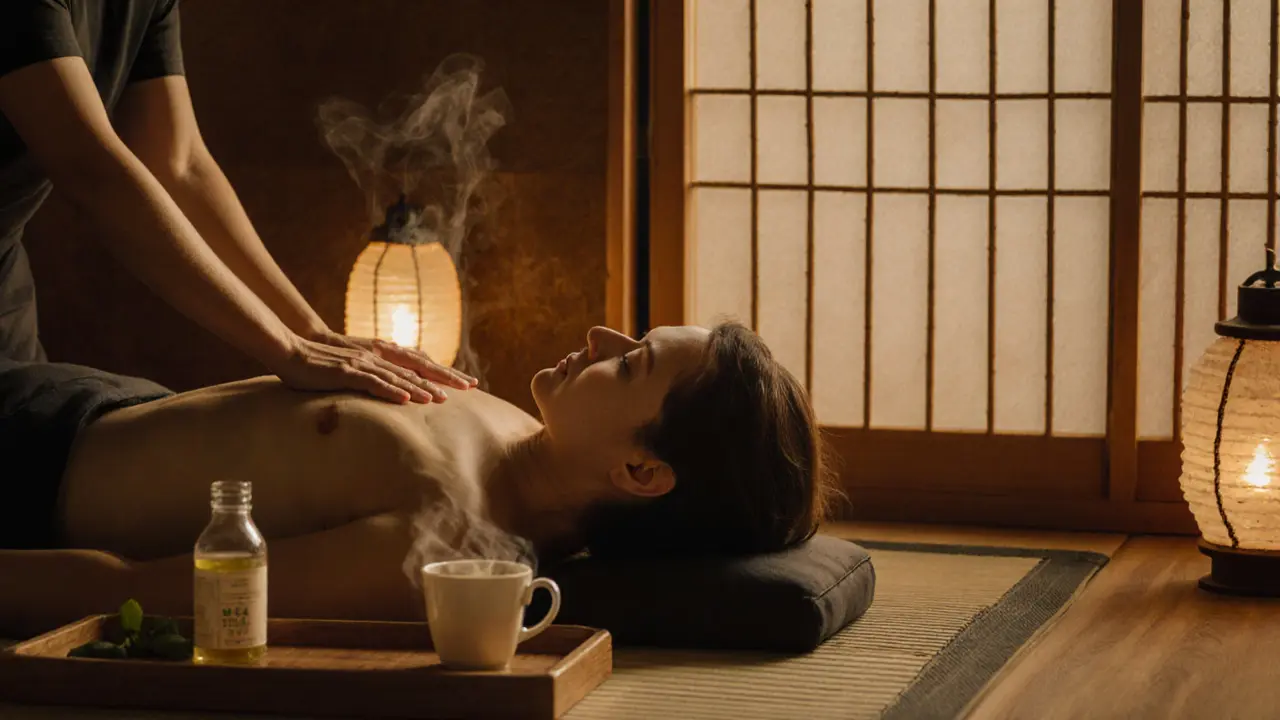
What to Expect During Your First Visit
If you’ve never had a massage in France, here’s what happens:
- You’ll fill out a short form-nothing medical, just questions about pain points, allergies, or pregnancy.
- You’ll be shown to a warm, dim room with soft music (if you want it). Some places play nature sounds; others play silence.
- You’ll undress to your comfort level. Most people keep underwear on. You’ll be covered with a towel the whole time-only the area being worked on is exposed.
- The therapist will leave the room while you get settled. They’ll knock before coming back.
- They’ll ask you to breathe deeply during pressure points. Don’t hold your breath. It makes the pain worse.
- Afterward, you’ll get water and maybe a herbal tea. No rush. You’re not on a schedule.
And here’s a tip: don’t jump up right after. Lie still for five minutes. Your body is still adjusting. Walking out too fast can make you dizzy.
Prices and What’s Worth It
Prices in Paris 17 are fair-not cheap, not luxury-marketed.
| Session Length | Swedish / Relaxation | Deep Tissue | Aromatherapy | Shiatsu |
|---|---|---|---|---|
| 60 minutes | €75 | €85 | €90 | €80 |
| 90 minutes | €110 | €125 | €130 | €115 |
| 120 minutes | €150 | €170 | €180 | €160 |
Anything under €60 for 60 minutes? Be careful. You’re paying for time, not skill. Anything over €200? That’s usually a hotel spa-overpriced and generic.
Look for packages. Many places offer 3-session bundles at 10% off. If you’re dealing with chronic tension, this is the smart way to go. One session gives relief. Three sessions start to change your body’s pattern.
Local Tips for the Best Experience
Here’s what most tourists don’t know:
- Go on a weekday morning. Spas are empty. You’ll get more attention, and therapists have more time to talk with you.
- Bring your own essential oil if you have a favorite. Most places will mix it in for free.
- Don’t eat a heavy meal before. A light snack is fine, but a croissant right before can make you feel sick during deep pressure.
- After your massage, walk slowly. Don’t rush to the metro. Sit in a park for 15 minutes. Let your body settle.
- Try a foot reflexology add-on. It’s only €15 extra and helps with headaches, digestion, and sleep.
And if you’re visiting from outside Paris? Ask for a receipt. Many therapists will give you one with their name, address, and license number. It’s not for tax purposes-it’s proof you got a professional service. Useful if you need to show insurance or a doctor later.
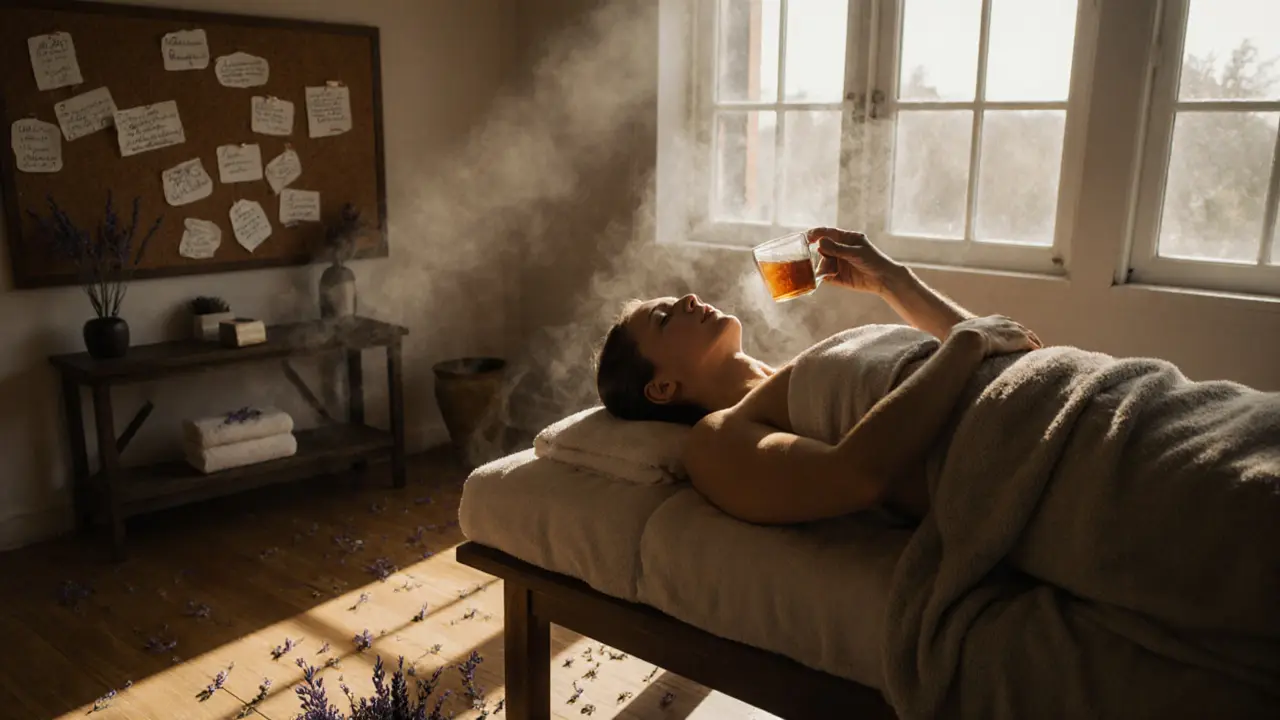
Who Should Avoid Massage in Paris 17
Massage isn’t for everyone. Skip it if you have:
- Open wounds or recent burns
- Severe osteoporosis (ask your doctor first)
- Active blood clots or deep vein thrombosis
- High fever or infection
- Recent surgery (wait at least 6 weeks)
And if you’re pregnant? Yes, you can still get a massage-but only from therapists trained in prenatal care. Not all of them are. Ask specifically: “Do you work with pregnant clients?”
How Often Should You Get a Massage?
There’s no magic number. But here’s what works for most people in Paris 17:
- Once a month - For stress relief and general upkeep
- Every 2-3 weeks - If you sit at a desk 8+ hours a day
- Every week - For athletes, dancers, or people with chronic pain
One woman I met near Parc Monceau gets a massage every Tuesday. She says it’s her “mental reset.” She doesn’t call it therapy. She calls it her “Tuesday peace.”
Final Thought: It’s Not About the Location. It’s About the Moment.
Paris 17 doesn’t have the glamour of the Champs-Élysées. But that’s why it works. There’s no pressure here. No one’s watching. No one’s taking photos. Just you, a quiet room, and someone who knows how to help your body remember how to relax.
Next time you’re in this part of Paris, don’t just walk past those small signs with “Massage” in faded letters. Step inside. Lie down. Breathe. You’ve earned it.
Can I get a massage in Paris 17 without speaking French?
Yes. Most therapists in Paris 17 speak at least basic English, especially in the more established studios. They’re used to international clients. If you’re unsure, call ahead or send a quick message via WhatsApp or email. Most places respond within an hour. Simple phrases like "light pressure," "shoulders hurt," or "no music" are enough.
Do I need to tip after a massage in Paris 17?
No. Tipping isn’t expected in France. The price you see is the price you pay. If you want to show appreciation, a small gift like a box of local chocolates or a handwritten note means more than cash. Many therapists keep these notes on their desk.
Are there male therapists in Paris 17?
Yes. About half the studios have male therapists. Some specialize in sports recovery or deep tissue work. If you have a preference, just ask when booking. Most places let you choose based on gender, and they’ll match you without making you feel awkward.
Can I use my health insurance for massage in Paris 17?
Only if you have private French insurance that covers physiotherapy. Most public health plans (like Sécurité Sociale) don’t pay for relaxation massage. But if you have chronic pain and a doctor’s note, some clinics will provide a receipt you can submit for partial reimbursement. Ask for a "certificat de prise en charge" when booking.
What’s the best time of year to get a massage in Paris 17?
Winter is the busiest-cold weather tightens muscles, and people want relief. But spring and early autumn are the best times to go. The weather is mild, the studios are quieter, and you’ll get more personalized attention. Avoid August. Most locals are away, and the few open spots are booked by tourists.

